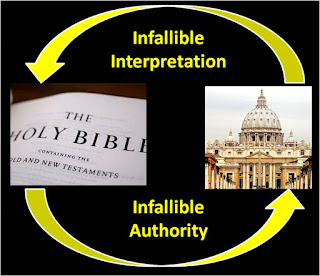 I was recently met with resistance over at Greenbaggins (not by Lane) over the notion that the invisible church and the visible church are two "perspectives" on the same church. My position is that the invisible and visible church distinction is not two perspectives on the same church, but rather a tool to help us to consider how to regard the institutional church in light of the fact that "not all Israel is Israel."
I was recently met with resistance over at Greenbaggins (not by Lane) over the notion that the invisible church and the visible church are two "perspectives" on the same church. My position is that the invisible and visible church distinction is not two perspectives on the same church, but rather a tool to help us to consider how to regard the institutional church in light of the fact that "not all Israel is Israel." First off, some terms are in order. The invisible church is the elect of God throughout all ages. The visible church is defined by the same Westminster Confession of Faith as those who profess the true religion along with their children. The Westminger Larger Catechism expands upon this definition of visible church to include those throughout all ages.
Let's now employ the terms to get a better understanding of things.
Christ died for the church. In that sense the church in view is the invisible church, though the institutional church is to be regarded as those for whom Christ died, the elect. Paul wrote to the church at Corinth, which we can assume included non-elect people. Accordingly, Paul wrote to a sampling of the visible church, which he regarded as part of the invisible church - those for whom Christ died (the elect alone).
Now for some polemical thoughts aimed to address some muddled musings that are shared by Federal vision people and non-Federal Vision people alike.
It is logically fallacious to define the church (or any entity for that matter) in contrary terms and then to predicate opposing definitions to the same entity. We may perceive God as holy and also as love and rightly say these are two true perspectives of the same God. The reason being, they are both true of the one God. However, given that the invisible church is comprised of the elect alone and the visible church includes non-elect people, we may not say that the visible and invisible churches are two perspectives of the one church, lest the church may be defined by mutually exclusive propositions. It's called equivocation. In this case the problems results by taking the cliché "one church from two perspectives" literally and not thinking through the implications. Hodge employs this phrase as did Berkhof.
When I argued this point on Greenbaggins I was met with an appeal to "perspective." However, appealing to "perspective" is simply evasive because perspective is only relevant when the subject of predication is comprised of at least both propositional perspectives, which requres they not be contrary. One who perceives God as love and another who perceives God as holy need not be thinking of two different Gods. But to think of the church as that which is comprised of the elect alone and to think of that same definition of church as including non-elect persons is to predicate two contrary definitions to the same church, which is not to think logically (or truthfully) about the same church. Perspective has nothing to do with it.
The simple solution to the question at hand is found in the Westminster Confession of Faith. It discusses the visible church and invisible church not as two different perspectives on the same church, as if the same church can be comprised of contrary propositions. Rather, the visible and invisible distinction is simply one that aids in informing us to treat or regard the visible church as if it were the same as the invisible church. This distinction actually presupposes that the visible church is not the invisible church and it also presupposes that the two concepts are not complimentary perspectives of the same church! Again, if both perspectives are true predicates of the same entity, then the two perspectives cannot be contrary; yet elect alone does not comport with elect plus non-elect.
Now then, if one agrees that sound theology would have us distinguish between the visible and invisible church then he would not be far off from realizing that we are to treat the visible church as if it were the same as the invisible church. The distinction of the visible and invisible church exists to inform us how to regard the visible church - as if it were actually the invisible church, though it is not by definition regardless of "perspective."
Again we see that analytic philosophy is needed in the church today more than ever because this sort of confusion is not only found in the Federal Vision movement. Indeed, if the non-Federal Vision had a better appreciation of these things Reformed churches would not have been so mystified and captivated by the movement of Federal Vision.
(As a side note, A.A. Hodge's "commentary" on the Confession is no commentary at all. He simply used the Confession as a platform for his theology, much of it good.)






